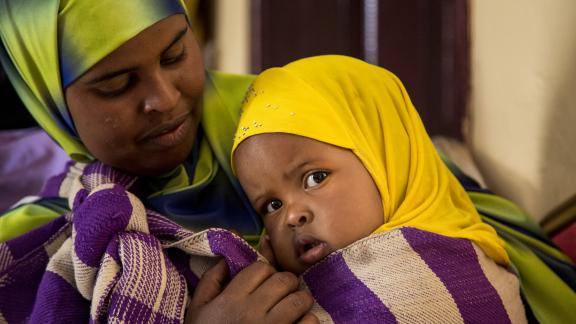After decades of the prolonged harmful practice of Female Genital Mutilation (FGM), hopes of its total obliteration finally gleam across Africa after the Africa Union (AU) charged political leaders to prioritize its elimination among their mandated roles.
The decision came after deliberations by civil society organizations (CSOs), women-led movements, political leaders and Heads of States/Governments met at this years’ AU Summit that was held in Addis Ababa, Ethiopia on February 10 and 11. At the summit, a special assembly was set up to discuss action around the scourge of Female Genital Mutilation (FGM), a practice that has had serious costs on African societies.
In effect, His Excellency Roch Marc Christian Kaboré, President of Burkina Faso, was designated as the AU Champion for the Elimination of Female Genital Mutilation;an indication that AU is keen on galvanizing political commitment towards wiping out FGM and child marriages in Africa.
The Assembly noted with concern, the high rates of FGM in Africa, where 50 million girls will be at risk of undergoing this injurious and harmful practice by 2030. FGM is a human rights violation which causes lifelong health complications resulting from the procedures administered to girls and women. The practice also adversely affects the maternal health outcomes on the continent.
The Assembly further endorsed the continental initiative led by the Commission to be known as Saleema: African Union Initiative on Eliminating Female Genital Mutilation. They (the assembly) called on Member States to implement the African Union Initiative on Eliminating FGM, with a focus on ending medicalization and addressing cross border practice of FGM.
Notwithstanding, the Assembly saw an urgent need to implement strong legislative frameworks, allocate domestic financial resources, promote use of evidence and data, regular reporting, and the engagement of civil society and community groups in ending female genital mutilation.
Finally, the Assembly requested the Commission to put in place an accountability framework to hold Member States to account and monitor progress at the regional and national level in line with commitments made.
ON ENDING CHILD MARRIAGE
The assembly reaffirmed its commitment towards the Implementation of the Common African Position on Ending Child Marriage in Africa and recommendations from the first African Girls Summit held in Lusaka, Zambia in November 2015 and all the recommendations from the 2nd African Girls Summit on Ending Child Marriage held in Accra, Ghana in November 2018.
The Assembly also decided to take concrete actions to end child marriage in all its forms and manifestations, with firm commitment to article 21(2) of the African Charter on the Rights and Welfare of the Child and to have comprehensive report on the progress of Ending Child Marriage in Africa through the reporting channel to the Policy Organs.
For more information please log on to: www.au.int
when
region
Africa









